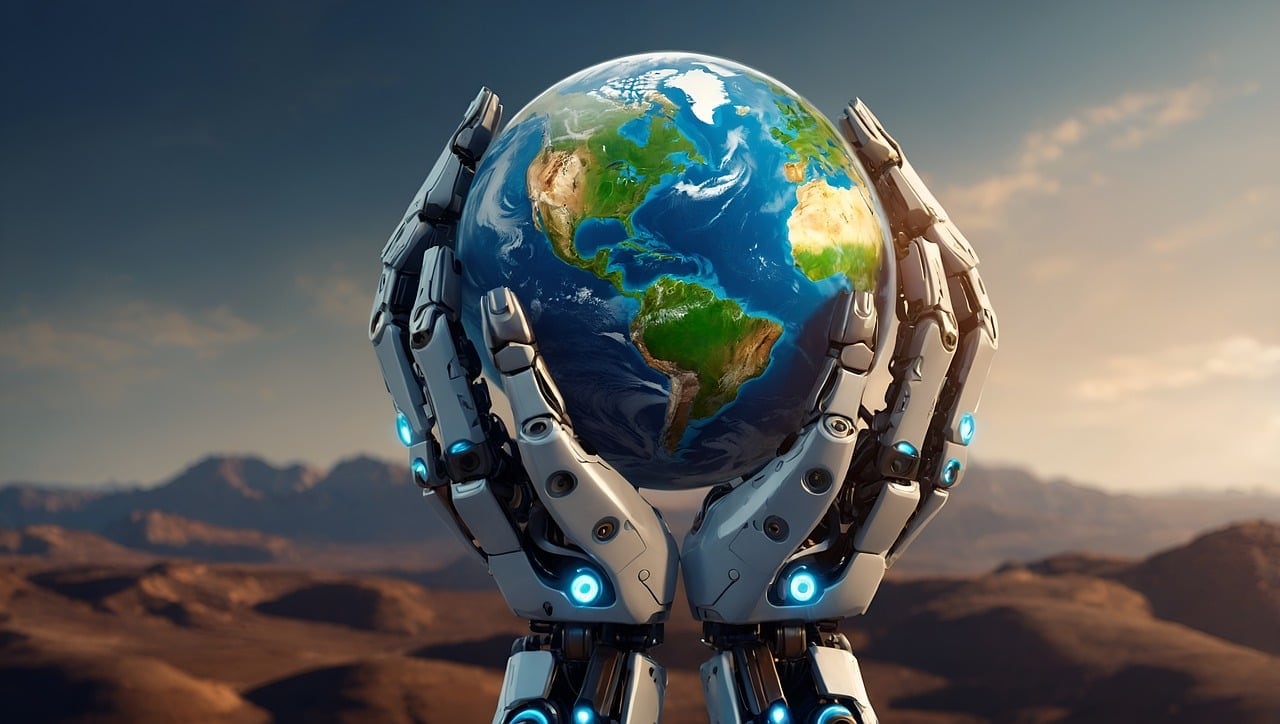In a future shaped by artificial intelligence (AI), humanity’s evolution sparks intense debate. Many thinkers have explored how AI could transform lives, sometimes for the better but often with ominous consequences. Some predict catastrophic outcomes, such as AI causing human extinction or a future where humans merge with AI to become cyborgs. These visions frequently paint a grim picture of humanity facing off against a unified, all-powerful AI force.
The AI-driven future might not unfold as the grim sci-fi dystopias we often imagine. Instead, for an evolutionary biologist, the rapid diversification of AI technologies into countless applications resembles the ecological proliferation of microbes, plants and animals. (Also read: Andrew Huberman shares ‘total’ fitness program to achieve strength, endurance and speed in just 60 minutes a day )
Impact of AI on human evolution
Rob Brooks, Scientia Professor of Evolution at UNSW Sydney, examined how human evolution might be shaped by a world rich in diverse AI systems in an article for The Conversation. In a recent paper published in The Quarterly Review of Biology, he explored the ways AI could impact physical, biological, and social environments and how these changes could influence the process of natural selection.

Natural selection, the driving force behind evolution, occurs because of genetic variations in reproduction among individuals. These variations stem from interactions with environmental factors (such as temperature), other species (like predators or parasites), and other members of the same species (including mates, allies, or competitors).
Around 30,000 years ago, Asian grey wolves began associating with humans, and the more reactive ones have driven away, leading to the domestication of dogs. This unintentional process provides insights into how AI might shape human evolution. As Douglas Adams said, predicting the future is a tricky business, especially with AI. Evolution, even more so. While it’s speculative, the aim here is to spark a conversation on how AI could alter human traits and evolution.
Future of human-AI interaction
The AI-human relationship could be seen as mutualism, where both species benefit from each other. AI helps lighten the cognitive load, allowing human brains to shrink over time. With AI managing knowledge and memory, our brains might evolve to be even smaller. However, like social media, AI could shift to a parasitic role, exploiting attention and emotional reactions, which might impact human evolution. In a worst-case scenario, the ability to resist such manipulation could become an evolutionary advantage.

Interactions with other humans have been central to our evolution, and now AI is becoming a part of our social lives. One notable development is “artificial intimacy,” where AI technologies mimic human social behaviours like friendship and relationships. Since humans haven’t evolved to interact with machines, we project our social skills onto AI, treating virtual friends as if they have emotions. This shift could make us more cautious about phone or screen interactions, or it could lead future generations to feel less lonely without human company, resulting in more solitary lives.
While AI’s immediate impact on individual lives is the primary concern for many researchers, it’s worth considering the long-term effects on human evolution. While genetic changes over generations may seem distant, they could eventually alter or even diminish key human traits like friendship, intimacy, communication, trust, and intelligence—traits most profoundly engaged by AI. As pioneering ecologist Robert MacArthur noted, being wrong isn’t the worst thing for a scientist; being trivial is. The potential evolutionary changes AI might bring could reshape what it means to be human.


